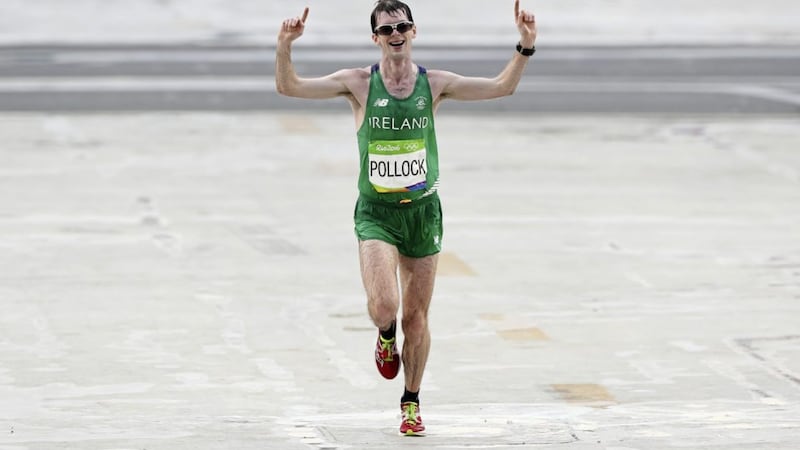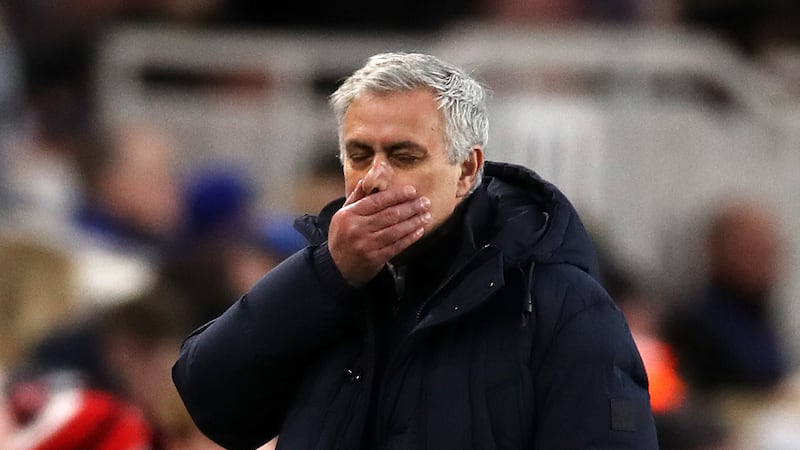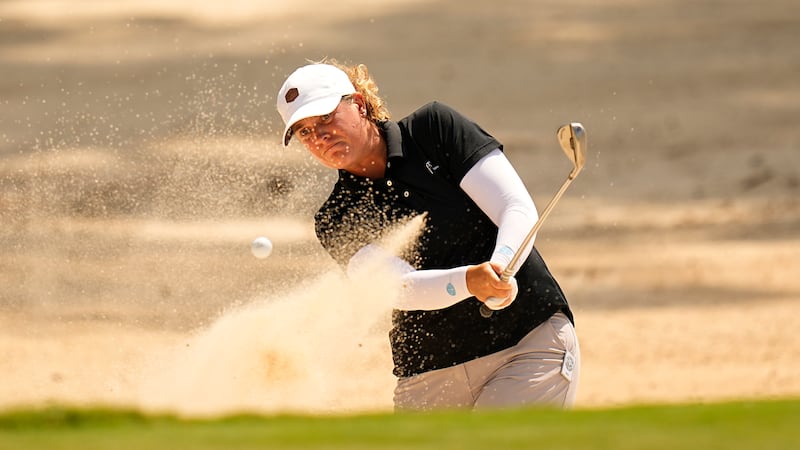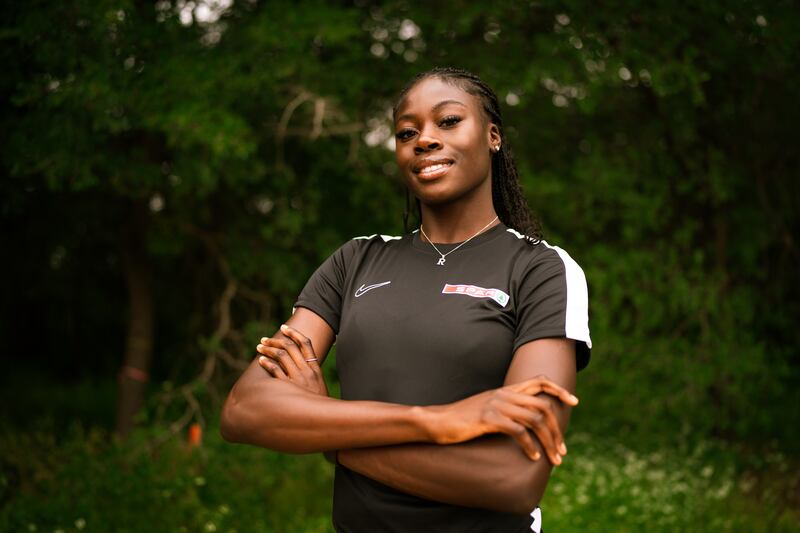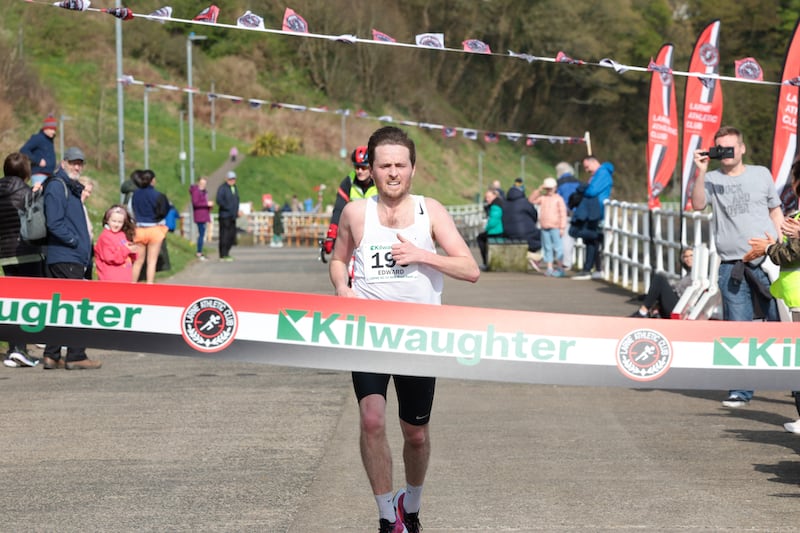THE nature of Paul Pollock’s job helped when confirmation finally came through. For weeks, the will they/won’t they charade surrounding the Olympic Games had turned into a circus.
While the rest of the sporting world ground to a halt in the face of the Covid-19 crisis, the International Olympic Committee persisted with a bizarre ‘business as usual’ approach. Eventually the pandemic escalated to such a level that even the fingertips of false hope could cling no longer as Tokyo 2020 became Tokyo 2021.
For Pollock, as with all those Irish athletes fine-tuning their preparations heading down the straight, the postponement announcement on March 24 was bitterly disappointing, if far from unexpected.
As an A&E doctor, moving from one situation into something entirely different is nothing new. The uncertainty of the weeks previous had helped ease the psychological adjustment somewhat and, for the Holywood marathon runner, life would move on fairly swiftly.
“One of the main benefits of working in a hospital, and working in A&E, is that you can adapt to new things very quickly and change your plans around very quickly. That definitely helped when all this started kicking off,” said the 33-year-old, who has also competed at World Championships and Commonwealth Games.
“We were fortunate in that we hadn’t planned training camps, we were still in discussions about what to do in the build-up so there was nothing set in stone.
“That all makes it a bit easier to get your head around. We know it’s going to happen at some stage next year so it’s just working out how to deal with things best. It’s the same for everyone and we all have to deal with that.”
Pollock and his young family relocated to Yorkshire around the turn of the year, and only moved into their new home two days before lockdown kicked in.
Working as a locum allows him to “pick and choose” his shifts around training, and he has found a routine that works for him since relocating to England in 2013.
“I’ve been registered with a lot of hospitals in Teddington, Gilford when we lived there, any time I’m home I would do a few shifts at the Royal, now here the nearest one is Harrogate.
“My wife Sophie is an anaesthetist but she’s on maternity leave with our 10 month old son at the minute. For the last few years it’s been about trying to find that balance between being a runner and a medical doctor, it’s been more on the running side with the Olympics.
“When all this happened, you have to change your whole plans around. Everything was geared towards the Olympics this year and now that’s not happening, you have to reassess everything.”
That recalibration just happens to be taking place in the midst of the biggest health crisis the world has seen in a last century. Pollock has largely found himself stationed in the non-Covid A&E departments, but a significant risk remains for anybody working in hospitals at this trying time.
“It’s definitely lower risk, but compared to not working at all it’s obviously much higher than staying at home.
“You’re trying to look after your own health, your family’s health, and helping others. At the minute there’s a lot of scared people; everyone’s got parents, grandparents, elderly people around them, so everybody has to be aware of that and try to look after each other.
“If we can all do our bit, hopefully we can get through this as best we can.”
Thoughts of the Olympic Games have been instantly pushed to the back of his brain, even if there are days when it is hard to shake the sense of a potential opportunity missed.
Four years ago Pollock travelled to the Rio Games on the back of a series of niggling injuries. Despite finishing in 32nd place, he returned home disappointed, believing he hadn’t done himself justice.
This time around though, he was in the shape of his life - that’s the tough part. But Pollock is determined to grab any good going.
“I’ve had plenty of injuries; I think I’ve had 10 or 11 stress fractures, never mind other injuries. I’ve been to so many championships and not made the start line because of an injury in the seven to 10 days before.
“It’s frustrating at the minute because I’m in the shape of my life and I can’t wait, but you just have to trust that you’re getting fitter every day and when the races do come around you’ll still be able to perform.
“I’m lucky because, for distance runners, not a whole lot has really changed training-wise. In Yorkshire there are plenty of country trails where you can go out for runs and not see anyone at all.
“We were looking forward to building up nicely for the Olympics but then this happens and you have to ease back a bit. That isn’t necessarily a bad thing, especially not in my case with the injuries I’ve had… it might actually stand me in good stead that I get three months of just getting miles done and getting base work in.
“I came back from Rio a bit disappointed because I wasn’t going into it not in the kind of shape I know I can get into. I had a few injuries in the lead up to it and I still ran decent, but it wasn’t what I wanted.
“I know I’m a better runner than what I showed there, so that was a big incentive to keep going and try to make the team for Tokyo.”
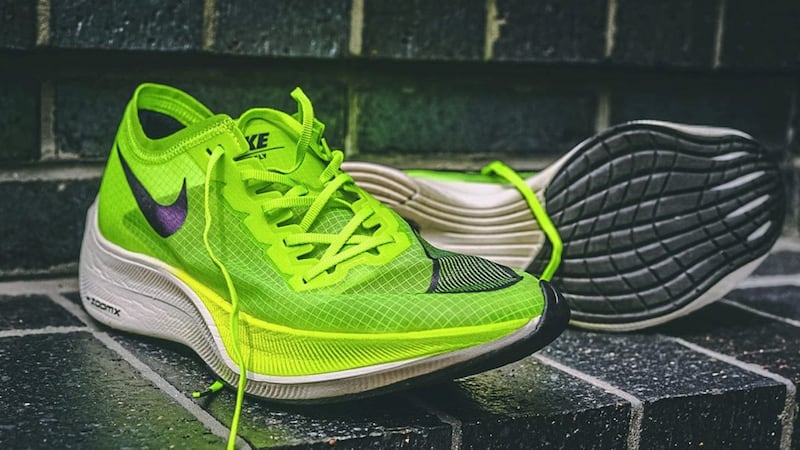
Pollock booked his spot on that team at last December’s Valencia marathon in Spain, clocking 2:10.25 to secure the automatic qualifying time - an improvement of over five minutes on his previous best.
It was also the first time Pollock had worn the Nike Zoom Vaporfly Next%s - the running shoes that have courted such controversy.
Back in January World Athletics gave the shoes their seal of approval, and Pollock admits he is still unsure what level of impact they had on his performance.
“That was the first time I’d ever worn them and it’s the sort of thing where I don’t know how much benefit you get from them; if everyone tells you they’re a super-fast, bouncy shoe, you’re going to think ‘I’m going to run fast, I’m going to run well’.
“How much of a placebo effect is involved, how much of a benefit they actually are, I’m not too sure.”
Having suffered yet another stress fracture in his foot during preparation for last September’s Berlin marathon, Pollock was just glad to be back on the starting line at all when December came around - and admits he “wasn’t expecting great things” heading to Valencia.
“I came into that marathon off a six or seven week build-up and, even though I had been in very good shape before Berlin, mentally I was in quite a poor place thinking I’ll just go out with the pacing group who are running their qualifying time and see how long I can stay with them.
“Myself and my coach [Andy Hobdell] were thinking if I got to halfway we’d be happy, 20 miles would be a bonus. I ran to the back of the group and I remember getting to 20 miles and it feeling like a Sunday run, and in the last 10k I pushed on and crossed the finish line.
“It was just one of those days where everything clicked and just felt… easy. Whether that was the shoes, the training, the not stressing about having to run a fast time, there were a lot of factors. Sometimes you just don’t know with marathon running.”
Following the Olympic postponement, Pollock faces another 12 months of looking over his shoulder – his place at Tokyo 2021 no longer guaranteed, with further qualifying events planned for the rescheduled Games.
Like all top end competitors, though, it is a challenge the flying doctor embraces.
“Myself and Kevin Seaward have the qualifying time, but if somebody runs the qualifying time or places top five in certain big races – as Stephen Scullion did earlier this year – Athletics Ireland pick.
“It’s a funny sport and in another 12 months, who knows what might happen? There are plenty of athletes in Ireland capable of doing it, it’s just whether they do it or not. Myself, Kevin and Stephen would all be a bit foolish to consider ourselves automatically qualified.
“But then, qualification for the Olympics shouldn’t be easy. There’s still a window there where other Irish runners might run faster, so you always have that in the back of your mind and it’s an incentive to keep pushing and pushing.”
